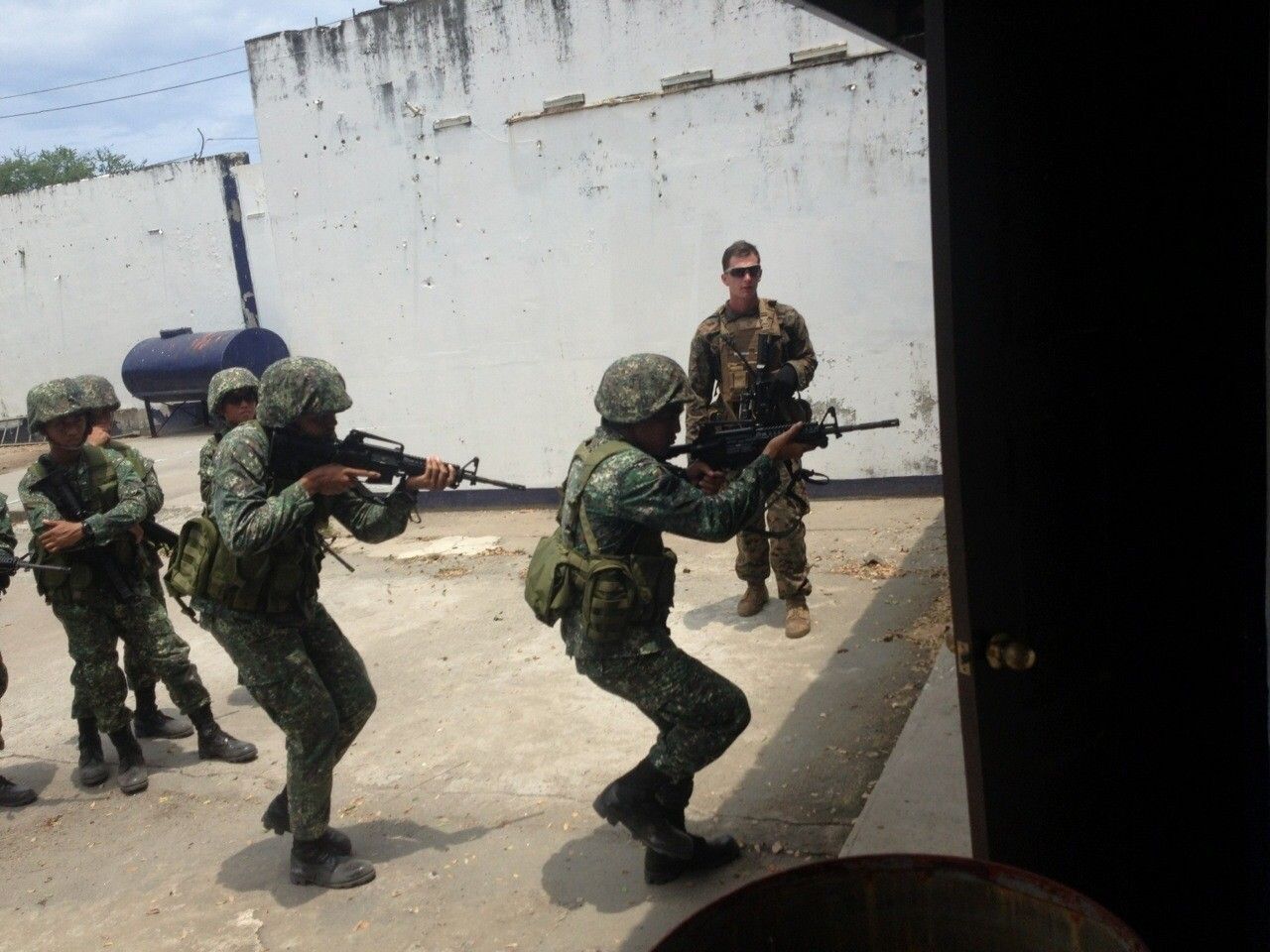Duterte’s decision to scrap the VFA: Whimsical or insidious?

Despite the senior senators’ pleas to reconsider his plan of abrogating the 1999 Philippine-US Visiting Forces Agreement (VFA), President Rodrigo Duterte decided to scrap the 20-year-old treaty. He ordered his executive secretary to instruct the foreign secretary to serve the notice of termination to the United States government.
A day prior to his decision, Foreign Secretary Teodoro Locsin claimed that abrogating the agreement would undermine the Philippines' security and encourage aggression (Chinese) in the South China Sea. Unfortunately, despite his foreign secretary’s plea for a vigorous review rather than termination of the VFA, the Philippine president opted for the latter.
Duterte made it appeared that his decision to terminate the VFA was because of the US government’s cancellation of his former police chief and close friend’s visa, now Sen. Ronald “Bato” De La Rosa. Duterte nurtured an impression that his abrogation of the treaty was an unthinking or a whimsical reaction to some petty and personal reason that unfortunately would have adverse consequences to the country’s security.
However, behind this veneer of triviality and pettiness of excuses for the VFA’s termination lies Duterte’s insidious scheme to wean the Philippines away from the US and to deliver the country into the waiting arms of China before his term ends in 2022.
Weaning the Philippines away from the US
A few months after he assumed office, Duterte launched several moves aimed to separate the Philippines from the US. On Sept. 12, 2016, he suddenly announced that US Special Operations Forces in Mindanao must leave the country.
On a two-day official visit to Vietnam in late September 2016, he disclosed that the Philippine-US Amphibious Landing Exercise 2016, conducted from October 4 to 12, 2016, would be the last military exercise between the two allies during his six-year term.
In late September 2016, he announced that he would forge “new alliances” with China and Russia to cushion the impact of the possible withdrawal of the US from the Philippines in 2017. He also revealed his plans to visit China and Russia, and chart an independent foreign policy, and “open (new) alliances” with these two major powers.
During his October 21 state visit to Beijing, he declared his separation from the United States and his realignment with China as two countries agreed to resolve their dispute in the South China Sea through bilateral negotiations.
The leadership of the Department of National Defense and the Armed Forces of the Philippines, however, thwarted Duterte’s efforts to gravitate towards China. The Philippine military was not comfortable with their commander-in-chief’s sudden pivot to China given the country’s almost 70-year alliance with the US and American security assistance to the AFP.
On Nov. 8, 2016, he pulled back from his earlier pronouncements on separating from the US. After meeting the president, Defense Secretary Delfin Lorenzana declared that the Philippine-US security alliance would not be abrogated and that the 2014 Enhanced Defense Cooperation Agreement (EDCA) would be implemented. Confronted by his own military, Duterte decided to buy his time and wait for the opportune movement.
Buying his time
Two years before his six-year term ends in 2022, Duterte believed that the time is ripe to tone down the Philippines’ security relations with the US. There are two reasons behind his decision.
First, he believes that the AFP would now support his move given the fact that he has increased the defense budget, funded the modernization program, and promoted senior officers within the ranks who will be loyal to their commander-in-chief. The second reason is the ongoing US-China strategic competition.
He sincerely believes that China now is the power in East Asia, and the Chinese have military superiority over the Americans in the region. Duterte has consistently parroted the Chinese rhetoric such as the South China Sea (dispute) and assumes that US strategic advantage vis-à-vis China is actually eroding.
He also believes that he must play an important role in increasing the permissive environment for China to create a new strategic equilibrium where it will gain strategic parity over the US. This means undermining the US’ strategic advantage in its competition with China—America’ alliances.
By pivoting away from the US towards China, Duterte is showing the world that an explicitly anti-China alliance under the US leadership will fail and that Southeast Asian countries, even American allies, can accept an illiberal Sino-centric regional order.
A few days before he threatened to abrogate the VFA, Duterte said in an interview that a conflict in the South China Sea would crush the Philippines, as he is wary that the American troops would take advantage and the conflict would spiral out of control. He openly expressed his fears of an intervention by the US that would push any conflict in the South China Sea in an unforeseen direction.
Clearly, he does not consider the Philippine-US alliance as a stabilizing factor in the South China Sea dispute or a deterrence against aggression. Rather, he sees it as a fuse that can ignite a major conflict in East Asia. Locsin warned that the abrogation of the VFA would render the 1951 Mutual Defense Treaty and the 2014 EDCA into just pieces of paper. This may have been Duterte’s insidious scheme since 2016.
Renato Cruz de Castro is trustee and convenor of the National Security and East Asian Affairs Program of think tank Stratbase ADR Institute.
- Latest

























